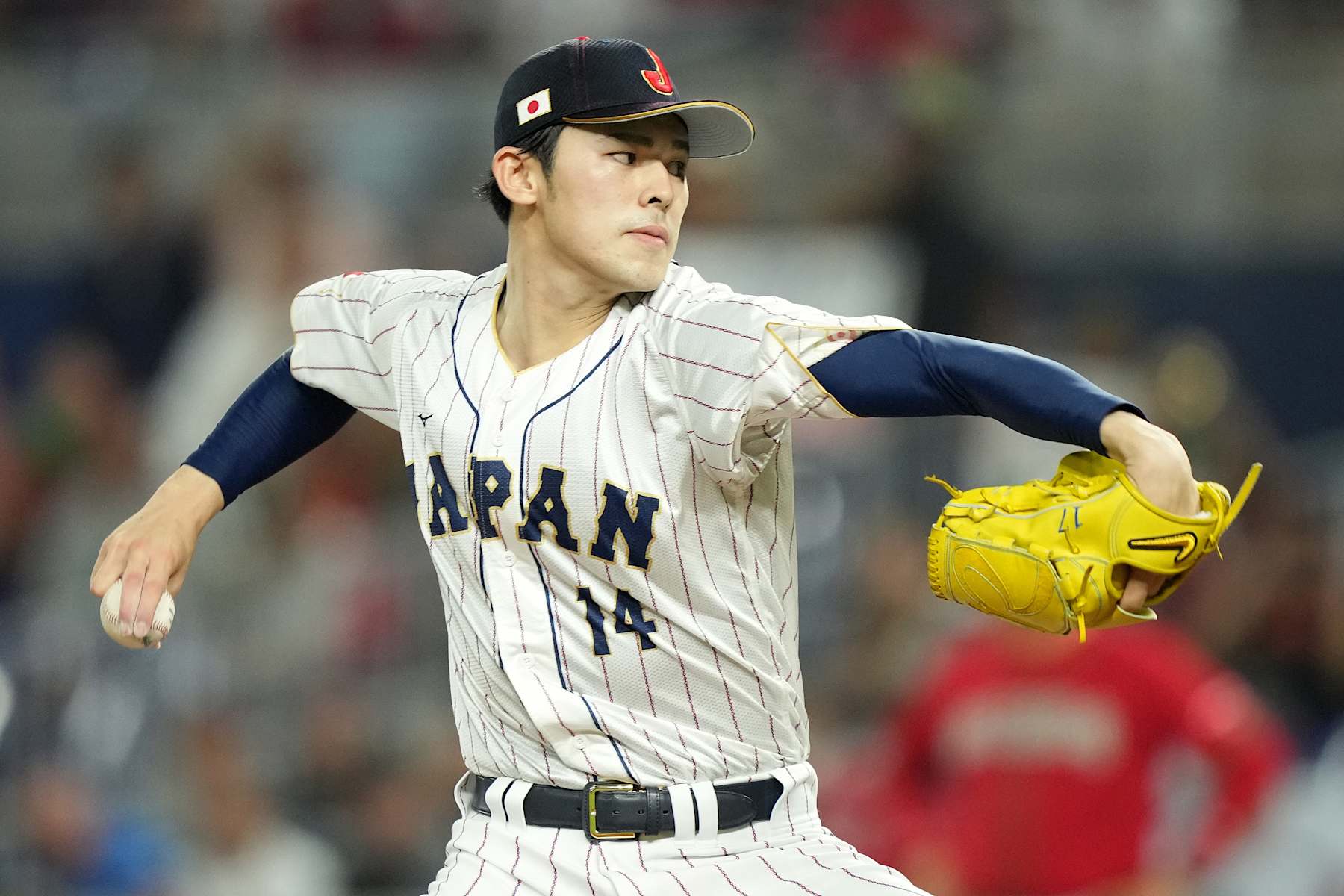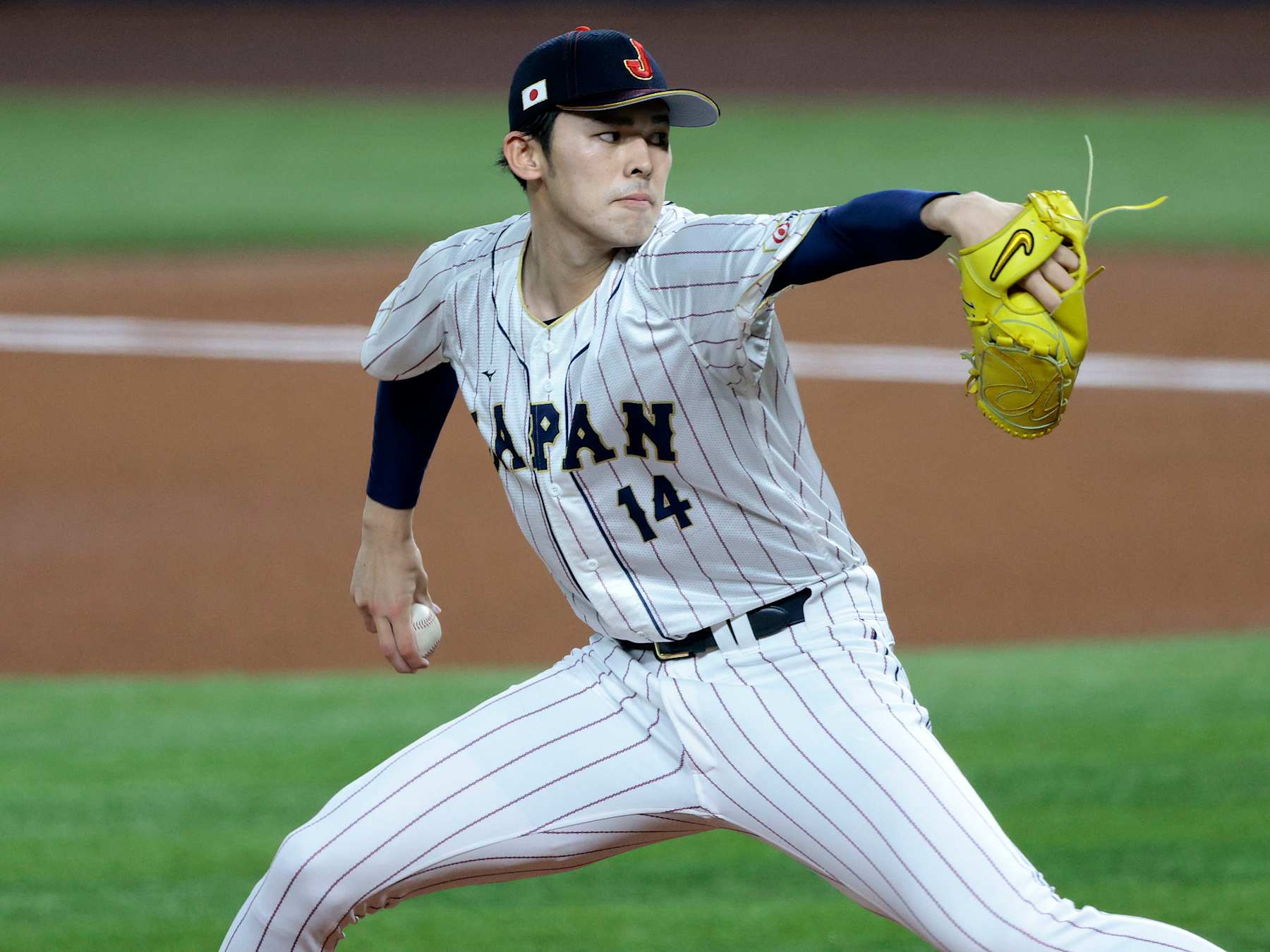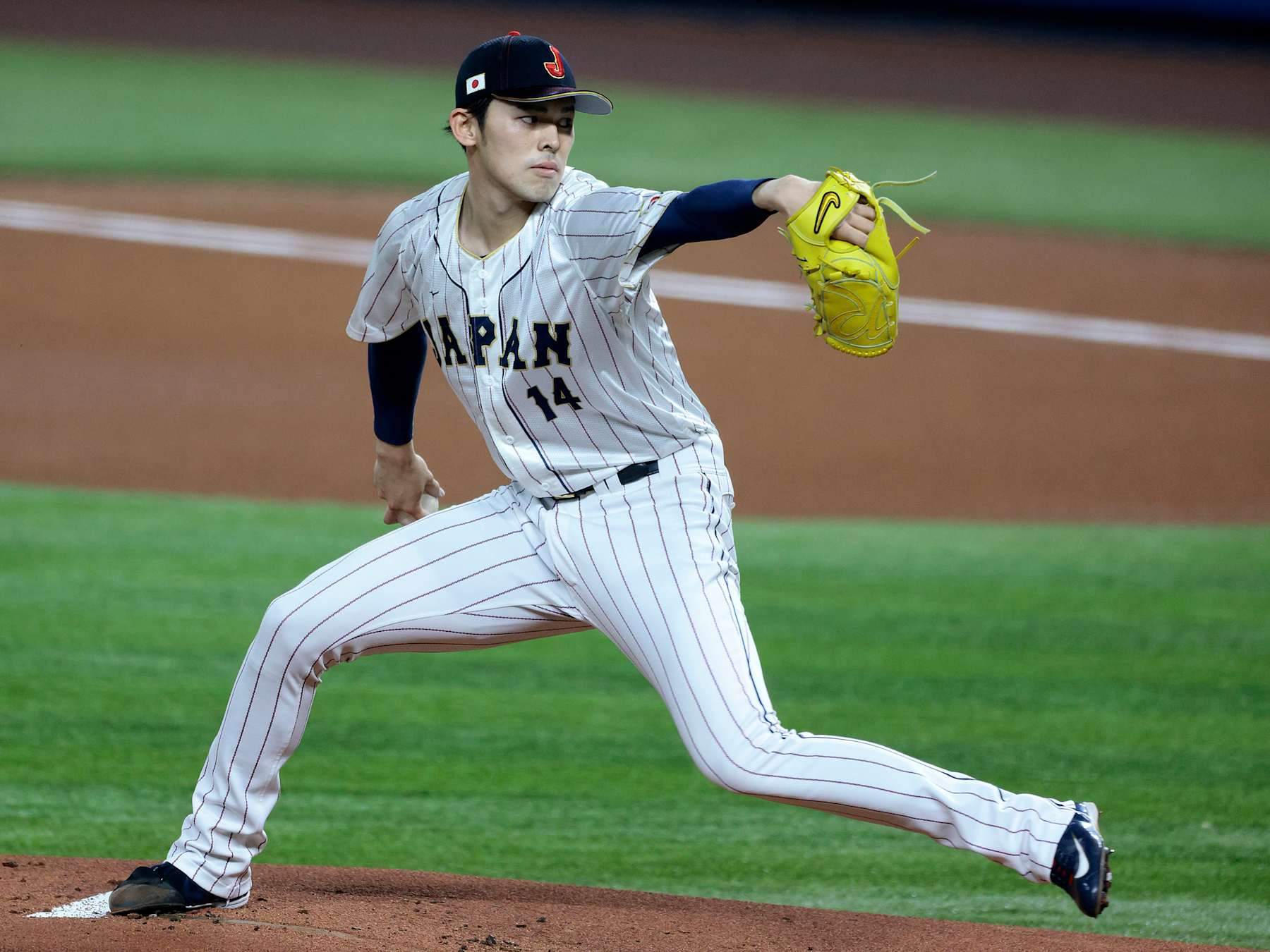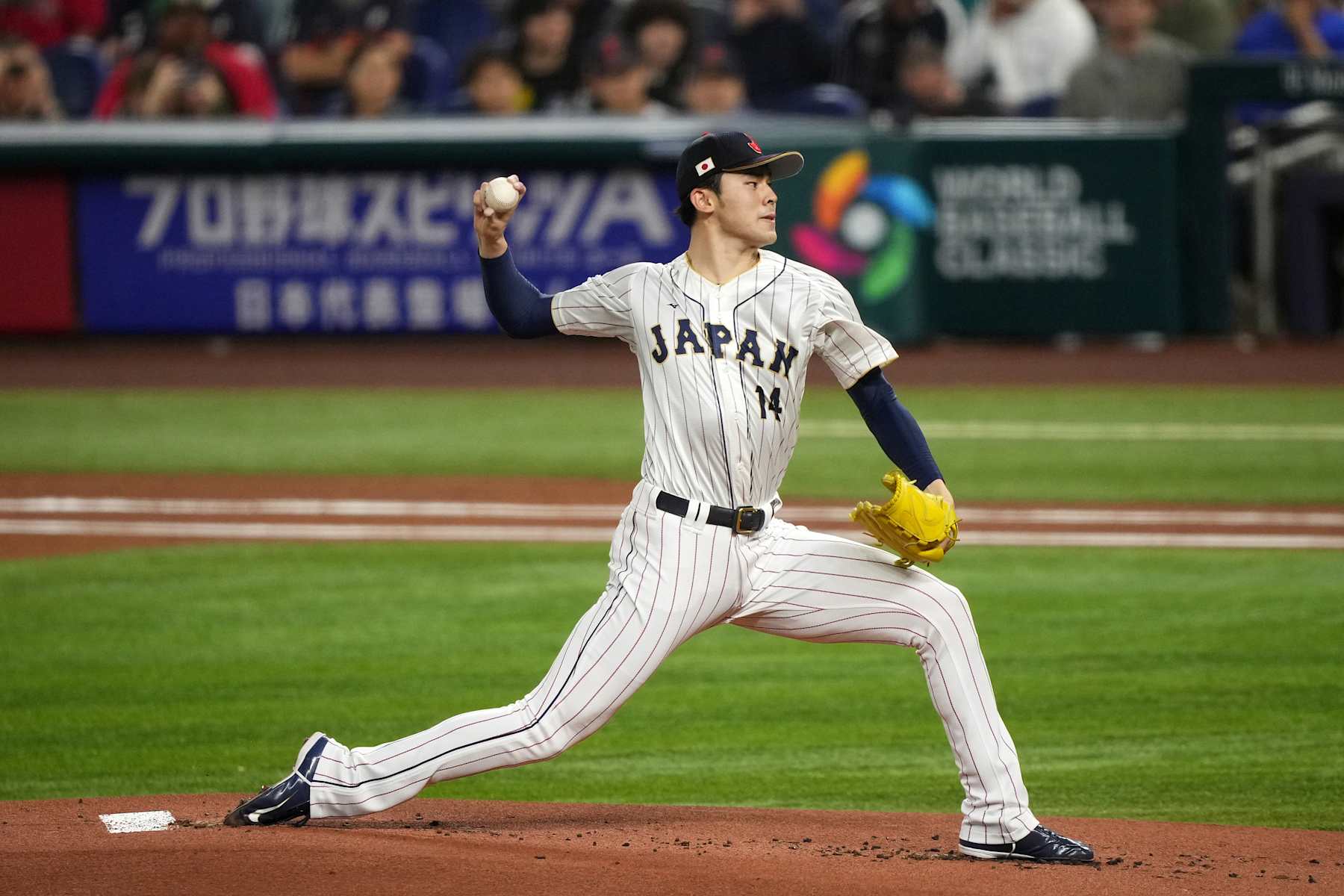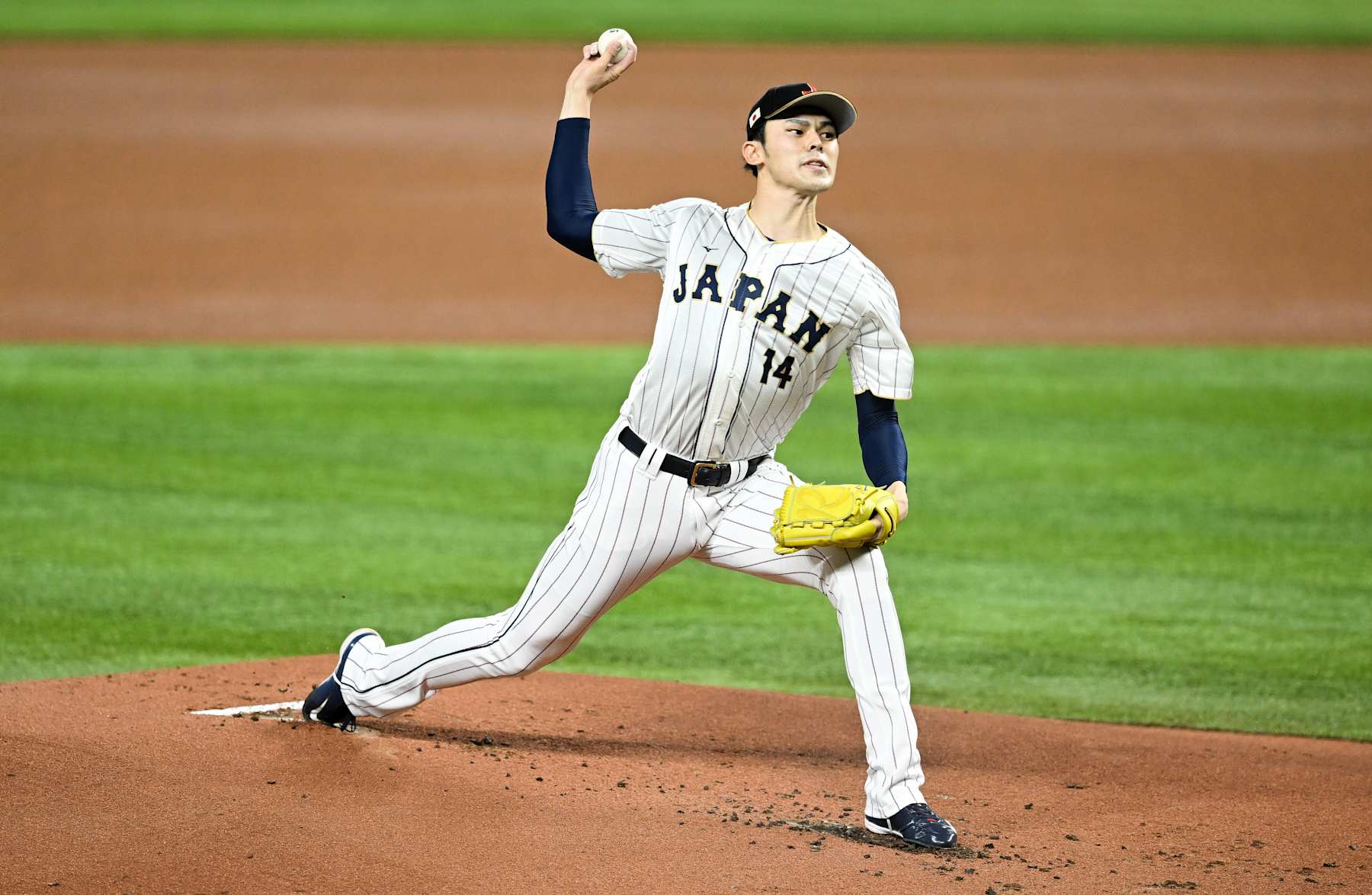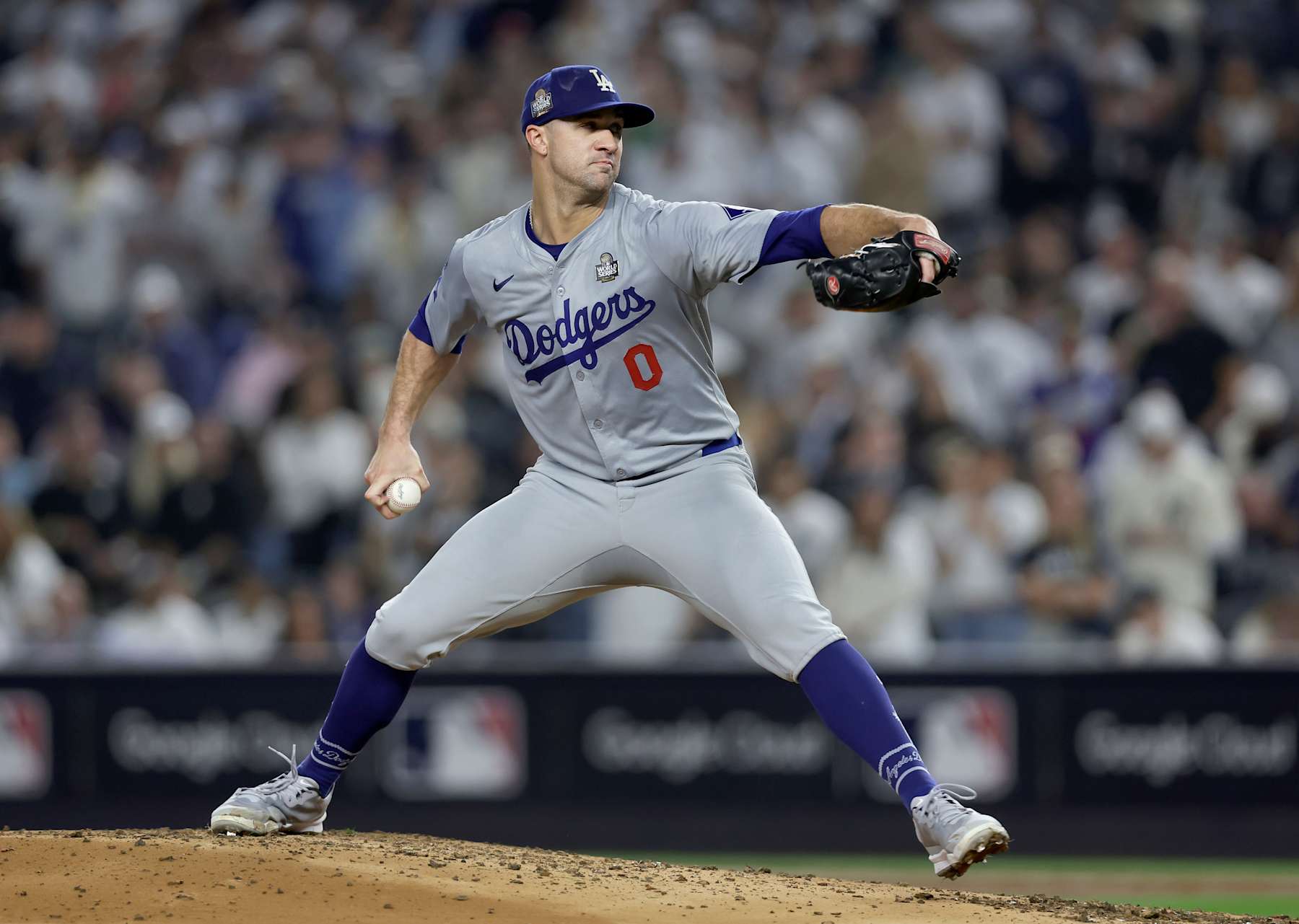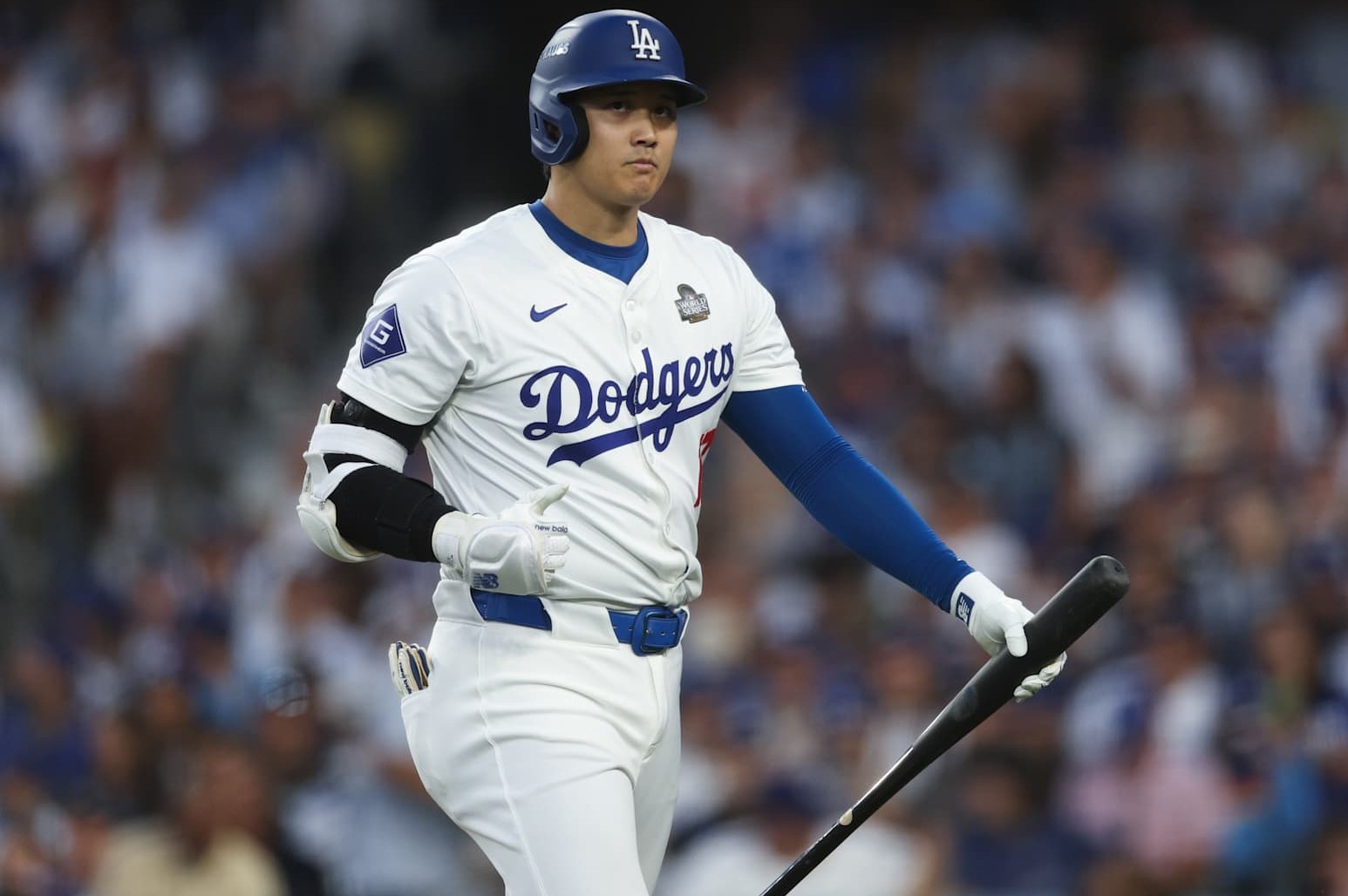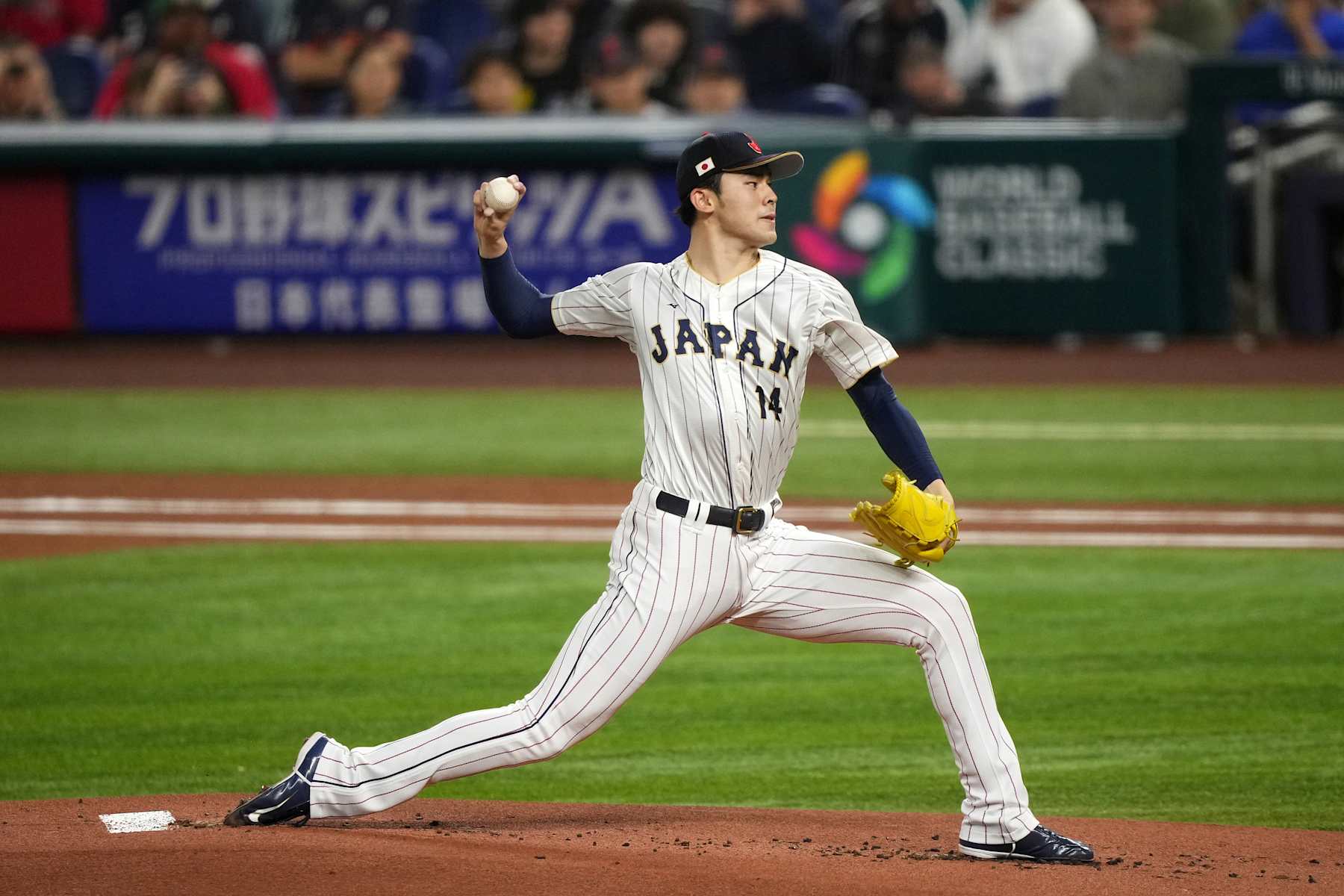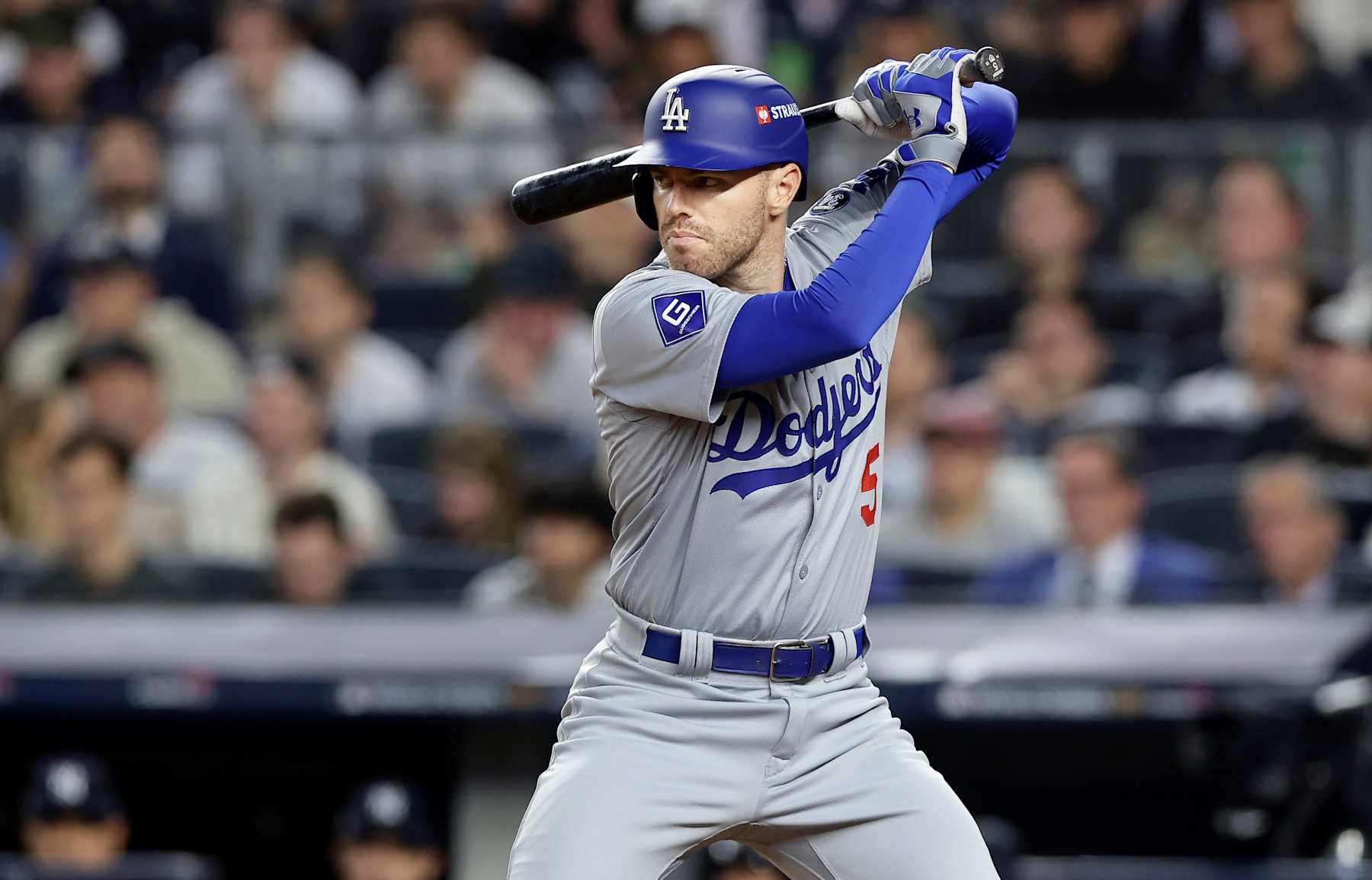Rōki Sasaki's Dodgers Choice Highlights a Growing Problem for MLB
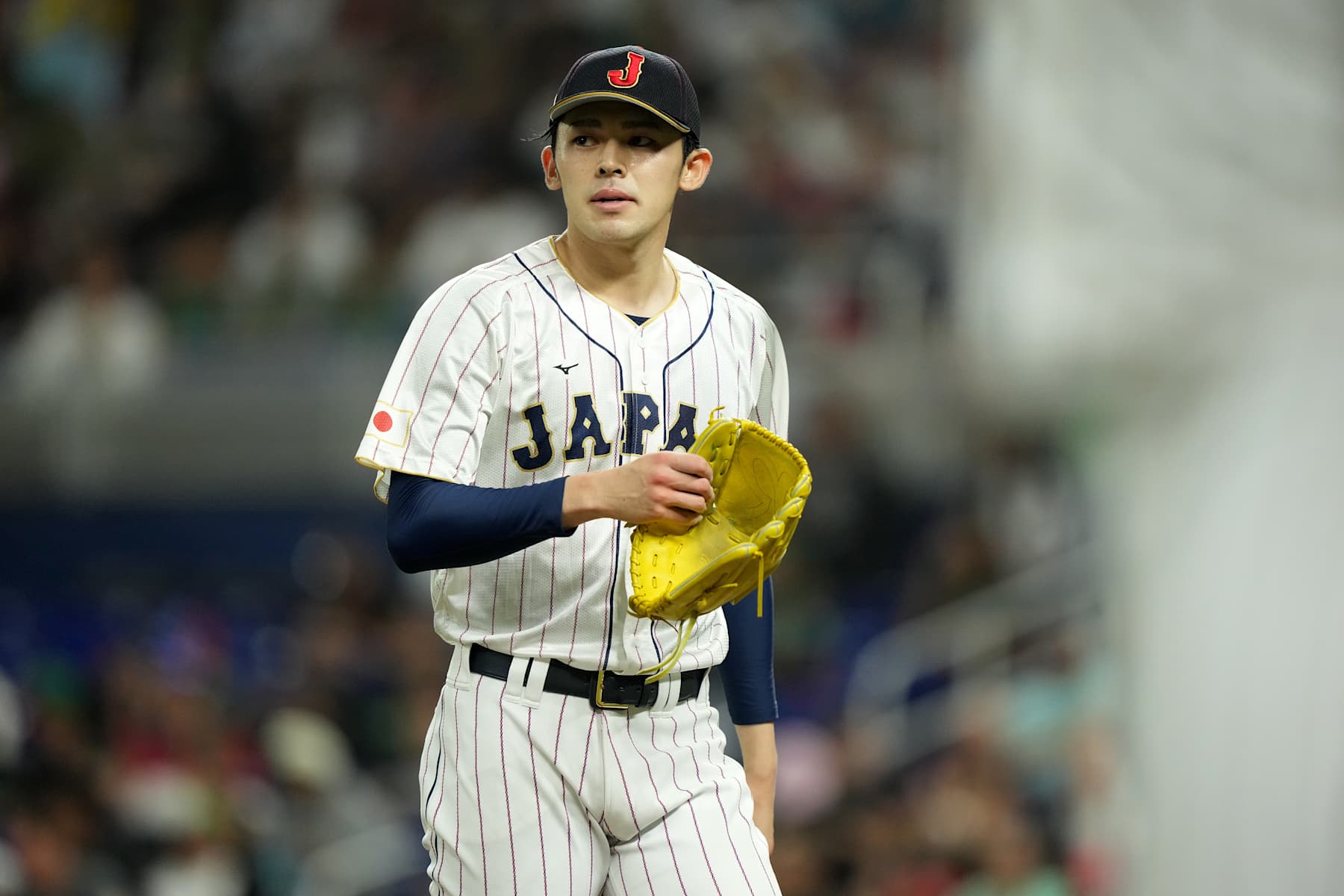
Major League Baseball has a problem, and that problem is the Los Angeles Dodgers.
They're too good.
This is how it feels, anyway, and it isn't just because the Dodgers were revealed as the winners of the Rōki Sasaki sweepstakes on Friday. It is a big deal that one of the most talented pitchers on Earth is destined for Dodger Blue, but there's more going on here.
Namely, that the Dodgers scored Sasaki after all that other stuff they've done.
It was just last winter that the Dodgers spent over $1 billion to add Shohei Ohtani, Yoshinobu Yamamoto and Tyler Glasnow to a core that already included Mookie Betts and Freddie Freeman. And it was, of course, not even three months ago that they won the World Series.
Even before Sasaki, 23, gave them the thumb's up for a $6.5 million bonus, the Dodgers were already one of the big winners of the winter. Blake Snell alone would have secured that distinction, but they also extended Tommy Edman, re-signed Teoscar Hernández and Blake Treinen and plucked Michael Conforto and Hyeseong Kim off the free-agent market.
Now, Will Leitch of MLB.com is right to opine that the Dodgers aren't unbeatable. This is baseball. It's never a given that the best team on paper will win everything, every time.
Nevertheless, doesn't it say a lot that such a thought even needs to be expressed?
The Dodgers Have Become a Bully
Spoiler Alert No. 1: In the coming week, I'll be publishing Power Rankings for all MLB franchises over the last five years.
Spoiler Alert No. 2: The Dodgers are going to be in the top spot.
They haven't had a losing season since 2010, and the arrival of president of baseball operations Andrew Friedman in 2014 effectively cemented the franchise as MLB's center of gravity. Since 2015, the Dodgers have won a league-high 943 games, four National League pennants and two World Series titles.
And this is even though they used to play it relatively safe.
For the first five years under Friedman, the narrative of the Dodgers' excellence more so concerned the ingenuity of their front office (which is still revered) and their eye for talent (ditto). Yet where the franchise's ample resources were concerned, restraint tended to win out. Save for the occasional blockbuster trade, they didn't really do earth-moving deals.
Things are obviously different now, and it's easy to look back on the Dodgers' trade for and subsequent $365 million deal with Betts in 2020 as the demarcation line.
That's one of eight nine-figure contracts handed out by Friedman within the last five years. He hadn't done even one before 2020, and it's hard to argue with the results. After not winning any between 1989 and 2019, the Dodgers have won two World Series since then.
The club's latest round of spending isn't surprising to this extent, but it is to another.
Whereas the Dodgers are pushing the envelope with $306 million in spending just in free agency, previous World Series winners didn't even tend to nudge said envelope:
- 2023 Texas Rangers: $46 million
- 2022 Houston Astros: $105 million
- 2021 Atlanta Braves: $62.2 million
- 2020 Los Angeles Dodgers: $158.8 million
- 2019 Washington Nationals: $316.8 million
- 2018 Boston Red Sox: $74.3 million
- 2017 Houston Astros: $23.5 million
- 2016 Chicago Cubs: $19.5 million
- 2015 Kansas City Royals: $229.6 million
- 2014 San Francisco Giants: $48.7 million
Even the bigger splashes evident here don't look so big in retrospect.
The post-2022 Astros mainly splurged on José Abreu and Rafael Montero. For the post-2020 Dodgers, it was Trevor Bauer. For the post-2019 Nationals, the ill-fated Stephen Strasburg signing cost the same amount of money that Anthony Rendon left for. For the post-2015 Royals, it was Alex Gordon and Ian Kennedy.
What the Dodgers are doing now is aiming higher, and the goal seems to be to rewrite a rule by which all World Series champs have had to abide for nearly a quarter-century.
That rule is that nobody repeats, and the Dodgers are clearly sick of it.
For MLB, How Powerful Is Too Powerful?
The Dodgers of right now call to mind the "Evil Empire" New York Yankees of the 2000s.
Though that moniker sprung up as a result of their head-to-head with the Boston Red Sox over Jose Contreras in 2003, it applied just as easily when they flexed their muscles in adding Hideki Matsui that same winter and Alex Rodriguez and Gary Sheffield a year later.
There was a general vibe that the Yankees were bad for baseball. They weren't all-powerful, per se, but no other team could tilt the table like they could.
The only reasons the Dodgers of today feel different is because A) the Yankees still exist and B) they're not even the most powerful team in New York. The Mets made that abundantly clear with their $765 million deal with Juan Soto.
Still, one can't help but imagine if the Dodgers' own pursuit of Soto would have been successful if he and Scott Boras had been cool with deferred money.
This is where the Dodgers' reputation for ingenuity hasn't so much faded into the background as changed shape. If credit must go the club's ownership for OK'ing so many huge deals, then credit must equally go to the front office for dulling the effect by punting so much of the collective commitment.
How much? Well, according to the Associated Press, over $1 billion for just seven players.
This is not against the rules. But more so than anything the Yankees ever did, it does feel like gaming the system.
Sure, the deferrals only do so much the blunt the average values of all the deals the Dodgers have handed out. Hence why their luxury tax bill for 2024 still came to a record $103 million.
However, that was for a hypothetical $353 million payroll. According to Spotrac, the Dodgers' actual payroll for last season was a mere $240 million.
The state of California isn't the only potential loser of this strategy. From the sound of comments he made in December, MLB commissioner Rob Manfred worries the league could be, too. As he said, "Deferrals at some point can become problematic."
At least on this front, the fix seems simple enough.
With the CBA set to expire in December 2026, Major League Baseball can look to insert language in the next CBA that limits how much money teams can defer. Or at least, a mechanism that better accounts for them in luxury tax calculations.
The Other Reason the Dodgers Feel Unstoppable
Even with all this said, Sasaki, at least, isn't a Dodger right now because they engaged in deferral chicanery to get him.
The Dodgers did have to trade for international bonus money in order to sweeten their offer, but that isn't against the rules and they're hardly the only team to engage in such activity. Per Occam's razor, he's a Dodger because they were his best option.
This always was the most likely outcome, and that was the case even before the righty picked out a trio of finalists. Though Sasaki technically had his pick of 30 teams after being posted by the NPB's Chiba Lotte Marines in December, all the arrows pointed to Los Angeles.
That says as much about the other 29 teams as it does about the Dodgers. Because while they dare to dominate, too many others are content to be stuck in the mud.
You have to hand it to the Mets and Yankees for at least trying to keep up with the Joneses in Chavez Ravine. And to the Arizona Diamondbacks and San Francisco Giants, whose ownerships have OK'd over a half billion dollars' worth of contracts since September.
But where are the other big spenders?
I'm talking about you, Boston Red Sox, Chicago Cubs, Detroit Tigers and Washington Nationals. All four of you are seemingly spending a lot less than you can, and each of you entered this winter with a firm excuse to break from that pattern. Instead, not one of you has aspired to anything more than a two-year deal in free agency.
The San Diego Padres, Texas Rangers and Atlanta Braves shouldn't be let off the hook either. All three are acting like they're deathly afraid of the luxury tax, with the Padres even threatening to offload star players to avoid it in 2025.
Then you have the Toronto Blue Jays, whose habit of trying to land stars only to get none is starting to feel like a bit. And the Baltimore Orioles, who have been frustratingly inactive at both adding veterans and extending members of their enviable young core. And the Seattle Mariners, who seem determined to let an electric pitching staff go to rot.
There is more to say about the general malaise that has settled over once-proud franchises such as the St. Louis Cardinals. And about those who are perpetually headed nowhere in particular, such as the Miami Marlins, Colorado Rockies and Pittsburgh Pirates.
But in any case, it has taken a village for the Dodgers to get to where they are now. They feel unstoppable in large part because the collective effort to stop them is so lacking.
To borrow a gaming parlance, it's time for the competition to get good.
Stats courtesy of Baseball Reference, FanGraphs and Baseball Savant.

